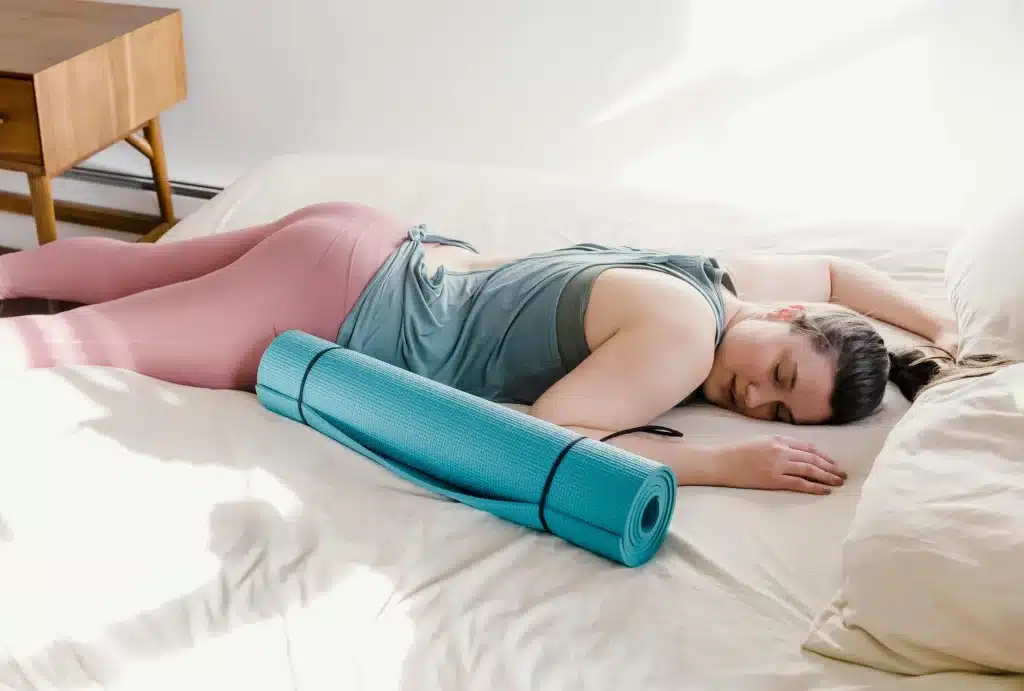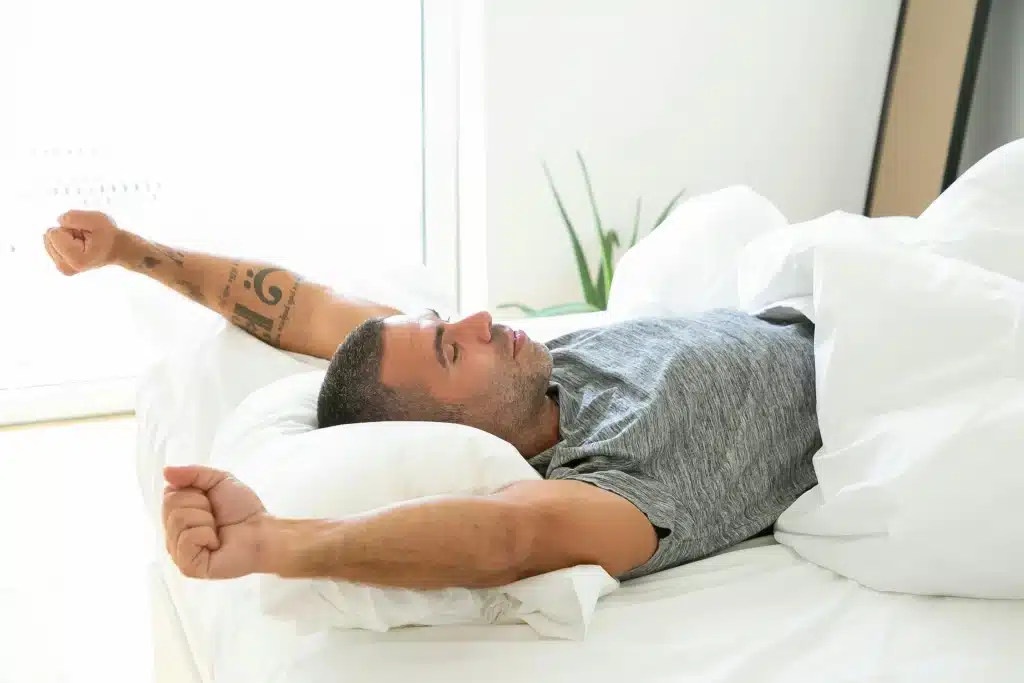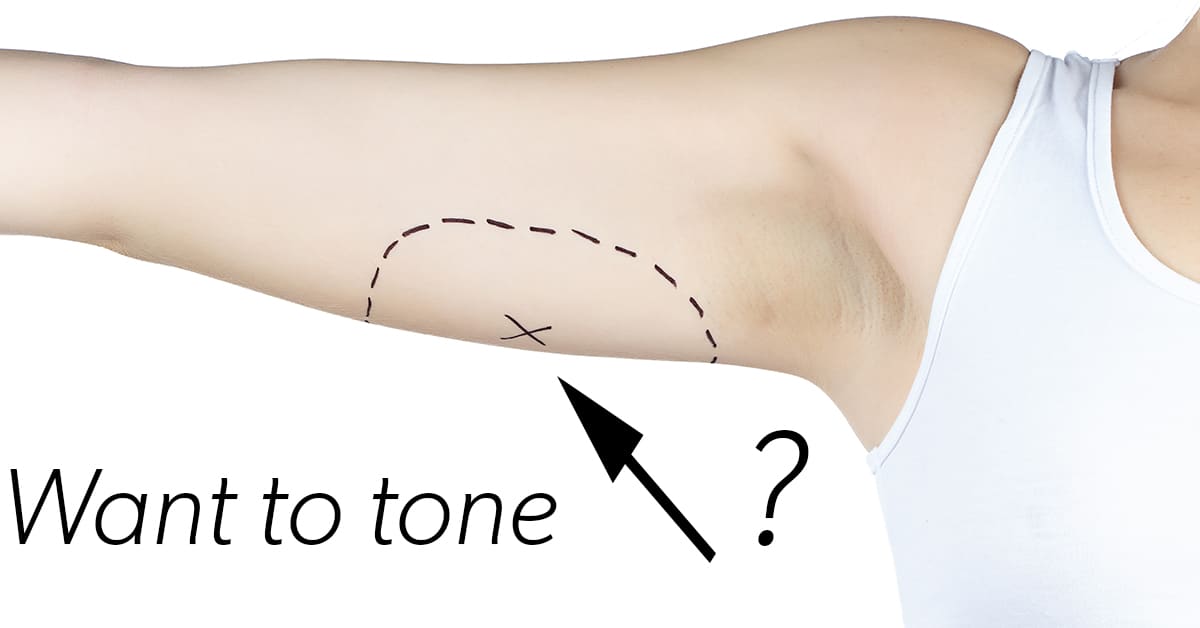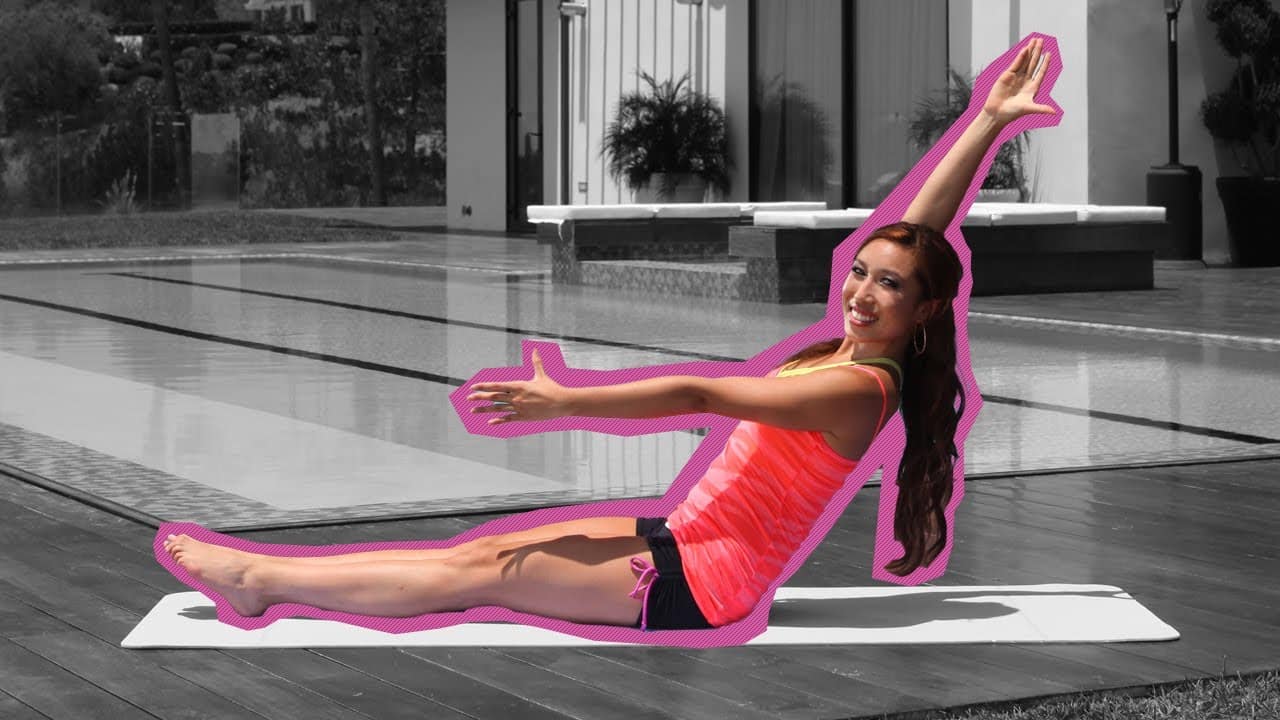Table of Contents
Understanding the intricate dance between sleep and fitness recovery is essential for anyone looking to enhance their physical performance, muscle recovery, and overall health. Sleep, often underrated, plays a pivotal role in the way our bodies recuperate from the day’s stress, rebuild muscle tissue, and integrate new skills. It’s during those quiet hours of rest that our bodies undergo a transformation, tapping into the natural recovery processes that are as critical to our well-being as any workout or nutrition plan.
At the heart of fitness progress lies not just the rigor of workouts or the precision of dietary plans, but the quality of rest we allow ourselves. Sleep is the unsung hero of peak performance, a fundamental pillar that supports muscle recovery, mental clarity, and emotional resilience. It is during sleep that our bodies release crucial hormones responsible for tissue repair and growth, making it a non-negotiable element of any fitness regimen.
Yet, the importance of sleep extends beyond the physical realm, influencing our mood, cognitive function, and motivation levels. A night of restorative sleep can be the difference between hitting a new personal best or feeling fatigued midway through a workout. It’s the foundation upon which our daily energy, focus, and drive are built.
By prioritizing sleep, individuals can unlock their full potential, optimizing their workouts and achieving a harmonious balance that enhances every aspect of their health. Let’s uncover the strategies and knowledge necessary to harness the power of sleep for maximum recovery and performance.
Understanding the Science of Sleep and Fitness Recovery
Sleep architecture is a fascinating complex of cycles and stages, each playing a unique role in our body’s recovery and health. It is during sleep that our bodies embark on the crucial process of muscle repair, cognitive maintenance, and emotional regulation. This journey through the night involves two primary types of sleep: Rapid Eye Movement (REM) and Non-REM sleep, each contributing distinctively to our recovery and well-being.
Non-REM sleep occupies the majority of our sleeping hours, unfolding in three stages, each deeper than the last. The initial stages of Non-REM sleep serve as the entry point into rest, allowing the body to begin its descent into a state of recovery. It is during the deepest stage of Non-REM sleep that the magic happens for fitness enthusiasts and athletes. Growth hormone levels surge, facilitating muscle repair, bone building, and fat burning. This stage is where the body consolidates memories related to motor skills, meaning the techniques and workouts practiced during the day are ingrained and refined as we sleep.
REM sleep, on the other hand, is where our brains get their turn at rejuvenation. It is during this phase that the brain processes emotions, memories, and stress from the day, playing a crucial role in cognitive function and mental health. For athletes and individuals committed to a fitness routine, REM sleep is when the mind solidifies strategies, skills, and patterns learned during training, integrating them into long-term memory.
The symphony of hormonal activity during sleep is intricate. Cortisol, the stress hormone, decreases during sleep, allowing our bodies to relax and recover. Simultaneously, anabolic hormones, which support muscle growth and recovery, increase. This hormonal balance is delicate and essential for optimal performance and health. Sleep deprivation can disrupt this balance, leading to increased stress levels, decreased growth hormone production, and impaired recovery.
Furthermore, sleep acts as a reset button for the immune system. Adequate sleep ensures the proper functioning of our immune response, protecting us from infections, inflammation, and illness. For anyone engaged in regular physical activity, this protective mechanism is vital, as it keeps the body resilient and ready for the next challenge.
Optimizing sleep quality and duration is not merely beneficial; it is foundational for those looking to enhance their physical performance, recover efficiently from workouts, and maintain an overall state of health. By understanding the intricate roles played by the different stages of sleep, individuals can begin to prioritize sleep as a critical component of their fitness and health strategy.
Navigating through the complexities of sleep and its impact on fitness recovery reveals a clear message: sleep is a powerful ally in the quest for physical excellence and well-being.
The Effects of Sleep Deprivation on Fitness Performance
Navigating the landscape of fitness and health, it becomes evident that sleep deprivation is a significant barrier to achieving peak physical performance. The lack of adequate rest can severely impair an individual’s strength, stamina, and recovery, casting a wide net over their overall ability to perform and progress in their fitness journey.
- Physical Performance and Endurance: The first casualty of sleep deprivation is often physical performance. Studies have shown that athletes experiencing insufficient sleep report decreased endurance levels, slower reaction times, and a reduced ability to sustain high-intensity efforts throughout their activities. This decline is partly due to impaired glucose metabolism and decreased aerobic capacity, both critical for energy production and endurance.
- Cognitive Functions and Decision-Making: Beyond the physical, sleep deprivation impacts cognitive functions critical for fitness enthusiasts and athletes. Mental alertness, strategic thinking, and decision-making capabilities can all suffer, making it challenging to stay focused during workouts or competitions. The brain’s decreased ability to assess situations, make quick decisions, and learn new techniques can hinder an athlete’s performance and increase the risk of errors or injuries.
- Mood and Motivation: The psychological effects of sleep deprivation further complicate the fitness landscape. A lack of sleep can lead to mood swings, irritability, and a notable decrease in motivation and drive. When the mind is tired, the body follows, making it harder to maintain the consistency and intensity required for effective training and recovery.
- Increased Risk of Injury: Sleep is a critical time for the body to repair and strengthen tissues. Without it, the body’s repair processes are compromised, increasing the vulnerability to injuries. Muscles, tendons, and ligaments are all at higher risk when the body is not given ample time to recover, potentially sidelining athletes from their training and competitive pursuits.
- Weakened Immune Function: Finally, chronic sleep deprivation can weaken the immune system, making the body more susceptible to infections, colds, and other illnesses. For individuals engaged in regular, intense training, this can mean more time away from the gym and a longer road to achieving their fitness goals.
The ramifications of sleep deprivation extend far beyond feeling tired. Its impact on physical performance, cognitive functions, mood, motivation, injury risk, and immune health can undermine the hard work and dedication put into training and fitness. Recognizing the importance of sleep is paramount for those looking to optimize their performance, recovery, and overall well-being in the realm of fitness.
Strategies for Enhancing Sleep Quality for Optimal Recovery
Achieving optimal sleep quality is not just about the quantity of hours spent in bed; it’s about making those hours count towards recovery and performance enhancement. Implementing strategic changes to sleep habits can significantly impact physical fitness, mental sharpness, and overall health. Here are some effective strategies to enhance sleep quality for optimal recovery.
- Establishing a Consistent Sleep Schedule: The body thrives on routine. Going to bed and waking up at the same time each day sets the body’s internal clock to expect sleep at a certain time night after night, improving the quality of rest. This consistency helps deepen sleep cycles, making recovery processes more efficient.
- Creating a Sleep-Conducive Environment: The bedroom should be a sanctuary for sleep. Factors such as temperature, noise, and light can dramatically affect sleep quality. Keeping the room cool, quiet, and dark signals to your body that it’s time to wind down. Consider using blackout curtains, eye masks, and earplugs to eliminate disruptions and create an ideal sleeping environment.
- Diet and Exercise Timing: What you eat and when you exercise can influence your sleep quality. Avoiding caffeine and heavy meals before bedtime can prevent disruptions in your sleep cycle. While exercise is beneficial for sleep, engaging in vigorous activities too close to bedtime can leave you too energized to fall asleep. Aim to finish exercising at least a few hours before you plan to sleep.
- Pre-Sleep Routine: Establishing a pre-sleep routine can ease the transition between wakefulness and sleep. Activities like reading, taking a warm bath, or practicing relaxation exercises can help signal to your body that it’s time to rest. Avoiding screens from smartphones, tablets, and computers can also prevent the blue light emitted from these devices from interfering with your sleep cycle.
- Mindfulness and Relaxation Techniques: Stress and anxiety can hinder your ability to fall asleep and stay asleep. Incorporating mindfulness and relaxation techniques such as meditation, deep breathing exercises, or progressive muscle relaxation can help calm the mind and prepare the body for sleep. These practices can reduce stress levels, making it easier to achieve a state of restfulness.
- Limiting Naps: While napping can be a way to catch up on missed sleep, long or irregular napping during the day can affect nighttime sleep patterns. If you choose to nap, limit it to 20-30 minutes earlier in the day to avoid difficulties falling asleep at night.
- Seeking Professional Advice: If sleep issues persist despite making lifestyle adjustments, it may be beneficial to consult with a healthcare provider. Sleep disorders such as insomnia or sleep apnea can significantly impact sleep quality and require professional intervention. A healthcare provider can offer tailored advice and treatment options to address these issues.
Improving sleep quality is a multifaceted approach that involves making conscious decisions about your daily habits, environment, and routines. By implementing these strategies, individuals can enhance their sleep quality, thereby supporting muscle recovery, performance improvement, and overall well-being. As sleep and fitness recovery are intricately connected, prioritizing sleep is essential for anyone looking to optimize their health and performance.
Advanced Sleep Techniques for Athletes and Fitness Enthusiasts
For those deeply committed to fitness and athletic performance, adopting advanced sleep techniques can provide an extra edge in recovery and performance. These methods are designed to tailor sleep practices to the unique needs of individuals who push their bodies to the limit.
- Sleep Tracking and Analysis: Modern technology offers athletes and fitness enthusiasts tools to track and analyze sleep patterns. Devices such as wearable fitness trackers or apps can monitor sleep stages, duration, and quality, providing insights into how sleep affects physical recovery and performance. This data can be invaluable for identifying patterns and making adjustments to enhance sleep quality.
- Napping Strategies: Strategic napping can be a powerful tool for athletes, especially when training schedules or competitions disrupt regular sleep patterns. Short naps of 20-30 minutes can help improve alertness and performance without interfering with nighttime sleep. For those facing sleep deficits, longer naps can partially make up for lost sleep, though they should be used judiciously to avoid impacting the subsequent night’s sleep.
- Personalized Sleep Schedules: Recognizing that individual needs vary greatly, some athletes may benefit from personalized sleep schedules. This can involve adjusting sleep times to align with training schedules or natural circadian rhythms. Working with a sleep specialist can help athletes find the optimal sleep schedule to maximize recovery and performance.
By integrating these advanced techniques, athletes and fitness enthusiasts can further optimize their sleep for recovery, ensuring they are at their best physically and mentally for training and competition.
Conclusion: Sleep and Fitness recovery
Emphasizing sleep’s pivotal role in fitness recovery and performance enhancement is crucial. Prioritizing rest not only fosters physical and mental well-being but also propels individuals towards their peak potential. By integrating strategic sleep practices, one can unlock the door to optimized health, recovery, and athletic achievements, transforming sleep into a powerful ally in the pursuit of excellence.
Unlock a world of fitness insights and health tips directly to your inbox by subscribing to our Newsletter.
Further Reading: Sleep and Fitness recovery
For those interested in exploring the intricate relationship between sleep, fitness recovery, and performance enhancement further, the following resources offer valuable insights and scientific findings:
- Sleep, Recovery, and Metaregulation: Explaining the Benefits of Sleep
Discover the foundational studies on how sleep facilitates recovery from exercise fatigue, focusing on experiments involving physical activity and its impact on restorative processes.
Read more on PubMed - The Science of Sleep and Recovery in Fitness: Enhancing Your Zumba Experience
This article delves into how consistent exercise like Zumba can lead to better sleep quality and how physical activity, especially dancing, promotes quicker sleep onset and more restorative sleep cycles.
Explore on Zumba.com - Sleep and Athletic Performance: Impacts on Physical Performance
An in-depth look at how a 30-hour sleep deprivation impacts the body’s ability to fully recover, emphasizing the importance of sleep opportunity for athletic performance.
Learn more on PubMed - Science of Sleep: How a Good Mattress Can Boost Your Fitness Recovery
A unique perspective on the role of a good mattress in enhancing fitness recovery, detailing how supportive structure, pressure relief, and temperature regulation contribute to muscle relaxation and recovery.
Read the full article at The Bedding Mart











